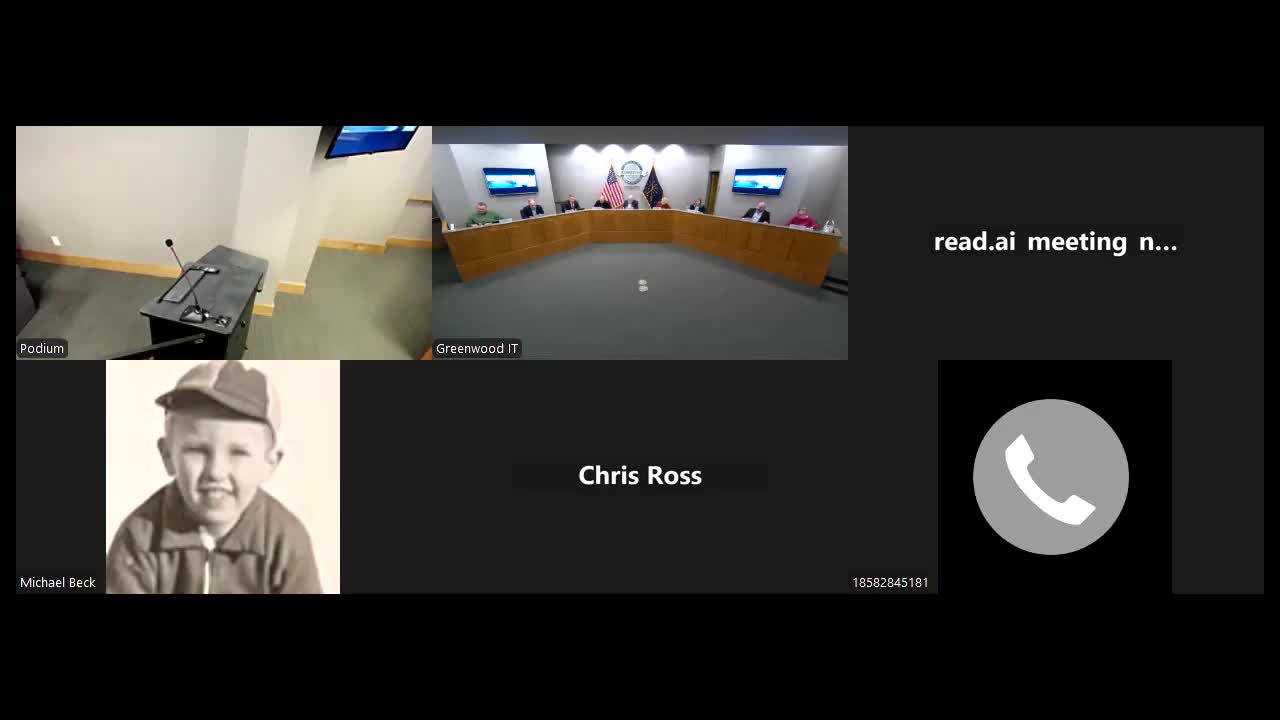Greenwood council approves designated outdoor refreshment area after hours and enforcement debate
Get AI-powered insights, summaries, and transcripts
Subscribe
Summary
The Greenwood Common Council approved Ordinance 25-26 to create a Designated Outdoor Refreshment Area (DORA) after members debated enforcement, permitted hours and impacts on festivals and nearby residences. The measure passed on second reading by a 5-3 vote.
The Greenwood Common Council on Nov. 3 approved Ordinance 25-26 to establish a Designated Outdoor Refreshment Area in the city after a sometimes-heated discussion about enforcement, hours and community impacts.
Council members debated whether the proposed hours — described in the ordinance as daily noon-to-midnight operating hours — were too broad and could increase demands on police and public-safety resources, raise the risk of public intoxication and create nuisance behavior for nearby churches, schools and residences. One council member read an emailed statement opposing the ordinance and urged the council to consider shorter weekday hours, an application fee for participating businesses, signage and cleanup costs borne by the businesses, or a short-term pilot program with a sunset clause or evaluation after a year.
Council discussion also covered how the DORA would interact with special events. Members asked whether festival permits such as FreedomFest or RamFest would be covered by the ordinance or would still require separate event alcohol permits; staff said festivals would still need event-specific alcohol permits. Several councilors recommended limiting hours on weekdays and aligning the program with examples used in other municipalities.
After discussion, the council took a roll-call vote on second reading. The ordinance passed 5–3. The roll-call sequence in the meeting transcript recorded several council votes by name during the second-reading roll call (examples in the transcript include recorded "Aye" and "Nay" responses). The ordinance will allow participating licensed establishments to sell alcohol for off-premises consumption within the designated area during the permitted hours and subject to licensing and local regulations spelled out in the ordinance text.
Officials did not provide in the meeting a final schedule of participating businesses, a fee schedule, or a pilot-period timeline; council members asked staff to clarify hours and permit interactions and suggested that participating businesses bear at least some administrative and cleanup costs. The transcript shows the council debated but did not adopt the specific amendments suggested in the opposition statement; instead the original ordinance as presented was approved by the majority.
Availability of the DORA for particular events, the final list of participating businesses, enforcement protocols and any required signage were not finalized during the meeting and will depend on subsequent administrative steps.
